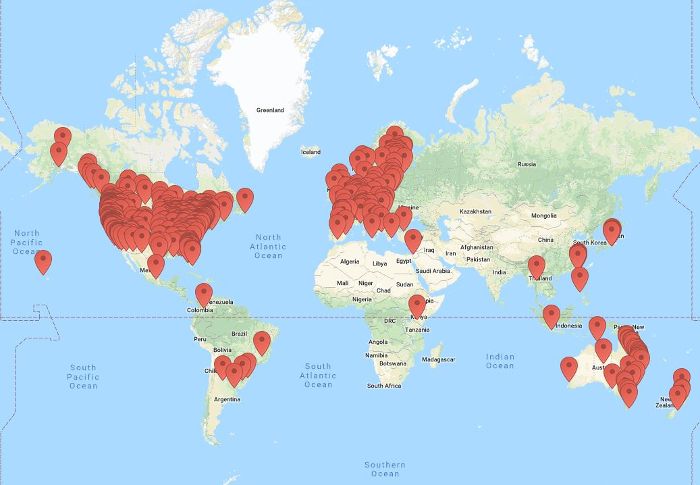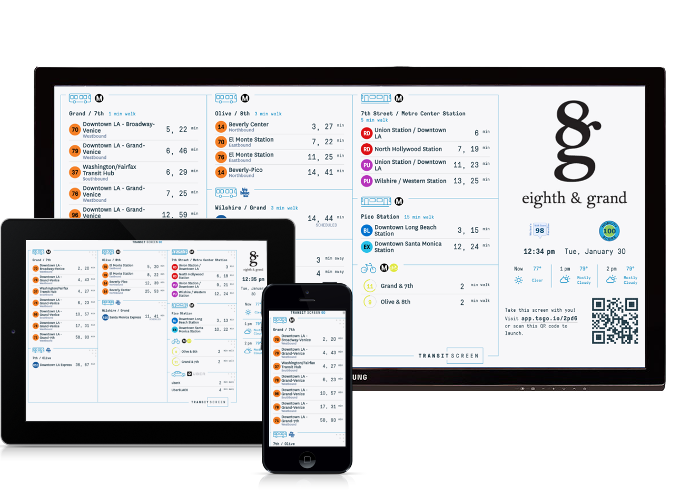TransitScreen, a Washington DC-based software company providing a real-time mobility information platform, has launched a new open data initiative in collaboration with the non-profit MobilityData organization, with the aim of building the ‘OpenStreetMap for transportation’.
Best known for its real-time displays of nearby mobility options, from public transit to bikeshare, carshare, and ridehailing services, TransitScreen, has formed a new partnership with MobilityData, which is focused on improving the information available to travelers by enhancing transportation data from across the world. Currently incubated by the independent non-profit sustainable energy organization, the Rocky Mountain Institute, MobilityData works in collaboration with stakeholders on five continents, to drive adoption of standardized mobility formats, increase the completeness of data formats, and improve the accuracy and quality of data.

The TransitScreen and MobilityData partnership has now formed OpenMobilityData to accelerate the creation and sharing of global public transit, urban transportation, and other shared mobility data. OpenMobilityData has acquired TransitFeeds, the most popular mobility data commons, from its creator, Quentin Zervaas. The TransitFeeds platform serves six million data requests annually for nearly 1,000 transit data feeds from 39 countries, and is the only site that supports both the GTFS (General Transit Feed Specification), originally created by TriMet and Google, and GTFS-Realtime data standards. OpenMobilityData will be the first data commons to fully integrate with transit data editors to update data automatically. Launch partners include TransLoc Architect, GTFS Manager from Trillium Solutions, and GTFS Editor from Conveyal.
 “The mobility industry badly needs an open data commons, with integrated tools for creating and editing mobility information, just like you can edit Wikipedia,” said Matt Caywood, CEO of TransitScreen. “Data creators want to contribute their time and effort to open platforms. OpenMobilityData will do for mobility data what OpenStreetMap did for geographic data.”
“The mobility industry badly needs an open data commons, with integrated tools for creating and editing mobility information, just like you can edit Wikipedia,” said Matt Caywood, CEO of TransitScreen. “Data creators want to contribute their time and effort to open platforms. OpenMobilityData will do for mobility data what OpenStreetMap did for geographic data.”
Leo Frachet, technical co-director at MobilityData, added, “Complete and high-quality data is the foundation upon which the mobility industry is being built. OpenMobilityData provides a neutral home for the whole industry to publish, visualize and explore this data.”
Alex Gibson, business owner of the mobility information unit at TransLoc, a division of Ford Smart Mobility, noted, “This partnership further grows the ecosystem of data by making it all that much easier for agencies to share and manage their GTFS. It’s critical for transit agencies to be able to share accurate and easily accessible data.”
Gabe Klein, partner at Cityfi and former commissioner of Chicago and DC’s Departments of Transportation, commented, “Data drives transportation more than ever before, and cities and transit agencies globally need a platform for sharing data with the private sector, app developers and the public.





